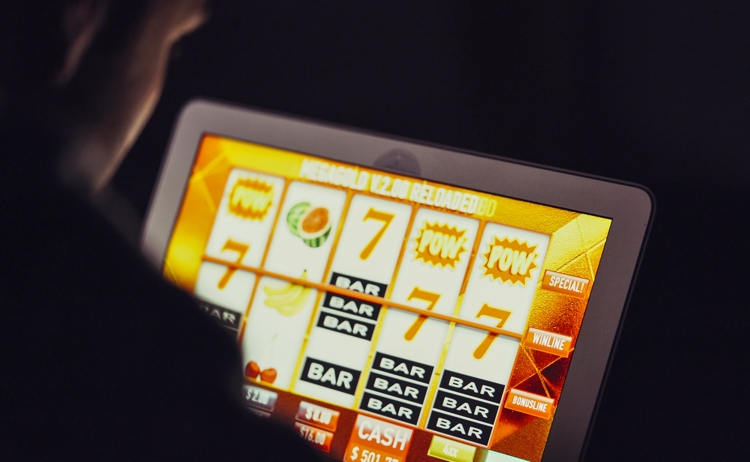Casino Gambling in the USA
Betting online is a common thing
Who gives a license to an online casino?
US Based and Licensed Online Casinos
While the Unlawful Internet Gambling and Enforcement Act of 2006 affected the thriving US online gambling and casino industry, millions of Americans remained committed to playing at their favorite sites. While the law attempted to change this fact, it actually made players even more determined to seek out quality US based and licensed online casinos, in a bid to play games such as slots, blackjack, roulette and video poker.
With the introduction of new laws in states such as Delaware, New Jersey and Nevada, it is becoming much easier to find US based online casinos which are licensed by recognized gambling authorities. These online casinos have had to go through rigorous standard checks to make sure that they meet the high levels of transparency and fair play dictated by the gambling authorities. As such, players can enjoy their online gambling entertainment at these US based and licensed online casinos with complete peace of mind, knowing that they are playing on a safe and secure platform.
There are many advantages to seeking out online casinos which are ‘home-grown’ and cater to the US gambling market. For starters, these online casinos seem to know exactly what local players need and require from their gambling sessions. The games that are offered are geared towards the US player, with trends recognized and favorites offered so that every play session is the most rewarding around. Software providers have done ample marketing research on the type of games players appreciate finding on the gaming platforms and create games accordingly.
Another advantage to playing at a US online casino is the fact that the payment methods supported by the site were handpicked to allow the easy transfer of funds and withdrawals of cash into the player’s online casino account. There is nothing more frustrating than finding a site that looks appealing, only to find out that there is no payment method that suit’s one’s needs. Whether players prefer to pay for their online gambling through credit or debit cards, e-wallets or bank transfers, good US-friendly online casinos will offer a good range of these – and more – to make payment a breeze. Withdrawing funds is also a much easier process when players can use methods that are suited to them.
On the subject of finances, one of the main advantages of a US based and licensed online casino is that payment is done in US Dollars. This means that players don’t have to waste time worrying about currency changes and other matters. It’s what-you-see-is-what-you-get when it comes to wagering limits, bonus amounts and so forth.
US casinos offer players the last word in bonuses and promotions, keeping them well rewarded with huge jackpots and regular special offers such as free spins, cash backs and more.
With the US gambling landscape constantly changing and progressing thanks to new state laws, competition in the US casino industry will heat up and players will benefit even more from the many different options made available to them.
Read about:
Online Casino Gambling is a global Phenomen
The global internet gambling industrybegan in the mid 1990s and has grown in size, product offering and delivery mechanisms. Today the main product verticals offered include online poker, online casinos, online bingo and online sports betting. Online poker networks offer cash games and scheduled tournaments. Online casinos offer a wide spread of games such as slot machines, roulette, blackjack and video poker. Sports books allow you to bet on almost any sporting event anywhere in the world from your home.
The growth in igaming has been powered by technological developments, both in hardware and in software. Initially the players were restricted to using Windows based desktop computers. But the development of Flash software allowed players using other operating systems like Mac and Linux to join in on their computers and laptops. Over the last few years the penetration of smartphones in most regions of the world has taken igaming to another level altogether. Players can wager for real money on all igaming products from their mobile phones and tablets. Players interested in real casino experience can sign up at live dealer online casinos where the action takes place on real tables operated by real dealers and is video streamed to players’ computers. Every day more and more players are signing up to enjoy casino gambling.
The igaming industry is fiercely competitive, which is a good thing for the players. The igaming operators function on the minimum of margins and offer increasingly improved products. The latest trend in online slots is branded slots. Casino games developers tie up with license holders of iconic movies and television series and create slot games based on them. These slot games incorporate graphics, audio and video content from the brands and are very popular. The regular casino games like blackjack and roulette are being tweaked to include innovative side bets and progressive jackpots.
Online casino gambling is global today, from Canada to South Africa and from Australia to the United States. Each country has its own requirements and preferences. Operators have realized that the “one shoe to fit all” approach will not work. The first important issue is language. Players like to wager at igaming sites that provide information in their own language. It makes them more comfortable as it eliminates chances of misunderstanding the instructions or terms and conditions. Therefore operators offer multi-language web sites allowing players to choose the language. Another aspect of the language issue is customer support. The best igaming operators offer customer support in local languages through toll free local numbers and live chat.
The second important issue is currency. If you have to wager in a currency that is not your local currency then you will not get the best igaming experience. There is a cost associated with currency exchange while making deposits and withdrawals and this will diminish your bankroll. Therefore igaming operators offer multi-currency web sites so that players can opt to wager in their local currency. Another aspect of the globalization of the igaming industry is the inclusion of local payment options alongside international ones. For example, Australian players may already be using Poli and would like to use that for igaming as well.
Online Casinos in the EU

|

|

|
The numbers speak for themselves when it comes to online gambling in the EU. Statistical data from 2011 showed the overall gambling revenues in the EU to be approximately a phenomenal €84.9 billion at an annual growth rate of 3%. Of this revenue, the slice from online gambling was €9.3 billion that year. With online gambling contributing to a healthy 15% of the overall gambling revenue of the EU, that number is definitely going skywards according to forecasts for 2015, at €13 billion.
Gambling in the European Union (EU) has been non-uniformly vibrant over the years since it started. While the EU is essentially aimed at making the whole of Europe one international entity with sub-entities in the form of nations under it, the laws for online gambling have not been crystalized into one common set, resulting in different countries having different sets of regulations for online gambling.
And yet, there has been a definite vibrancy about online gambling in the EU because of the tendency to view favor legalization and regulation instead of slapping a ban on it. Even with different member nations having their own sets of regulations regarding online gambling, there is a requirement for these to be in sync with the regulatory frameworks set up by the EU as a whole.
Germany has been one nation within the EU that has had a bit of a roller coaster as far as online gambling is concerned is Germany. But even in Germany, except for a period of confusion between 2008 and 2012, things have been pretty much on the up. The Interstate Treaty on Gambling (ITG) of 2008 made online casinos and sports bookers illegal, with the exception of wagering on horse racing, an activity that state-backed operators regulated.
However, the EU threw out the ITG in 2010 because it flouted the regulations laid down by the EU itself. In 2012, the German state of Schleswig-Holstein introduced its own set of legislations that provided licenses to a number of operators. This was in defiance of the updated IGT that had imposed a strict ban on online gambling. Finally, the state dismantled its Act and complied with the IGT, but before doing that it issued 50 licenses to online gambling operators, licenses that were valid for six years.
While there seemed a possibility of these 50 licensees facing legal action, it is highly unlikely that such a scenario would actually materialize. It may just be less of a headache for officials to let the license period run its course instead of treading legal waters. And because of this, online gambling has continued to flourish even in Germany. This is evident from one piece of data: the first fully German online casino, complete with a ‘.de’ domain name, was launched in 2013, after Schleswig-Holstein returned to the national fold and created that grey area for operators to exploit.
Regulated US Online Gambling Markets Fail to Perform as Expected
Betting in a Casino online is now legal in the US, at least in Delaware, New Jersey, and Nevada, but these newly regulated online gambling markets have failed to perform as expected. As Andrew Sidamon-Eristoff, the treasure of New Jersey, puts it “the results so far have not met our expectations.”
Some experts say that strict regulations have killed the industry even before it could mature. Fingers of blame have been pointed at glitches in the software, issues related to payment processing, problems regarding geo location, and above all, competition from unregulated offshore online gambling operators who do not have to comply with the strict gambling laws of regulated markets.
In New Jersey, predictions that tax revenues will be boosted by $180 million by 2014 have fallen flat, forcing New Jersey Governor Chris Christie to approve the revised figure of $160 million in the state budget. Even this figure turned out to be too much as online gambling generated only $9.3 million by the end of the fiscal year, and revenue further declined in April and May. In the middle of September, New Jersey lost an online poker room Ultimate Poker and an online casino Ultimate Casino when Ultimate Gaming announced the termination of its partnership deal with Atlantic City’s Trump Taj Mahal after the latter filed for bankruptcy. The future appears bleak for New Jersey’s online gambling industry.
The situation is no different in Delaware and Nevada. Delaware’s online gambling sites generated only $7.5 million in tax revenues during the fiscal year 2013 – 14. Delaware’s officials say that this is because of the delay in launching online gambling sites in the state and also because of startup expenses.
Nevada has decided not to make any projections or include any figure in the budget. The state, which has legalized only online poker, generated $700,000 in tax revenues during the fiscal year 2013 – 14.
According to experts, US’s young online gambling markets need time to grow. In the meantime, other US states are still making attempts to enact online gambling laws. The National Conference of State Legislatures says that bills to legalize online gambling have been proposed in New York, Mississippi, and California while laws preventing online gambling have been enacted in Pennsylvania. But there is no chance of any US state legalizing online gambling in the near future.
Chances of the US federal government legalizing online gambling are also remote. On the other hand, Representative Jason Chaffetz and Senator Lindsey Graham have proposed bills to ban all forms of online gambling and they have the support of several senators, state attorneys, and representatives. Casino magnate Sheldon Adelson, who has spent billions of dollars funding Republican campaigns, is behind the bill. He has not only launched a nationwide anti online gambling campaign, but has also announced that he is willing to spend any amount of money on the cause. The proposed bill has its critics too. For instance, Brian Sandoval, governor of Nevada, says that it takes away from individual US states the right to regulate online gambling.
Gambling licensing process in Germany suffers another setback
The igaming industry in Germany is floundering. The suspension of licensing for online gambling regulations by the German Wiesbaden Administrative Court in Hessen means the prospects of betting regulation have hit another major snag. The 11th hour suspension comes as a result of protests from operators who felt that the licensing process was rigged.
Protests lead to court suspension
The Hessen Ministry of Interior and Sport had decided to issue twenty new licenses on September 3rd, 2014, and the successful applicants included leading casino names like Bet-at-home, Bwin, Digibet, Ladbrokes and Betfair. However, the process of application for licensing and the choice of the successful applicants left many operators who were denied licenses fuming. So much so that a group of them - made up of domestic operators like Bet365, Lottomatica, Tipico and BetVictor - decided to appeal to the Wiesbaden Administrative Court and have the licenses revoked, which is exactly what the court did. It may come as a victory for the plaintiffs, but the court's decision has effectively taken online gambling in Germany off the table for some time. As the representative for MyBet Holding - one of the successful twenty - said, "it is not foreseeable...when exactly the licenses will now be issued."
The protests against the not-so-transparent licensing process have put the igaming industry in the country on the back foot for now. The Wiesbaden Court's interim order for suspension of licensing does not reveal when the process will be renewed again but sources are claiming that it can take anywhere from 12 months or longer.
Turbulent times ahead
For a country that boasts of having 10% of all world-wide online gamblers, this is indeed sad news. The annual turnover of the igaming industry in Germany is estimated to increase to EUR 1.8 billion by 2015. In just three years since liberalization - online gambling was prohibited in Germany until the end of 2011- the market has become a huge money churner for the European igaming industry. For the period from 2008-2011, the sixteen states had a treaty that prohibited all kinds of gambling which was lifted only after a European Court of Justice ruling in 2010 that deemed the treaty unlawful and non-compliant with the EU fundamental freedoms. A new interstate treaty was created, which came into effect on 1 July 2012, and which gave private companies the right to apply for licenses to offer and broker sports betting as well as lotteries. A license can also be obtained for advertising the services online. Gambling in a casino online must be safe.
Germany has been notoriously anti-gambling for a long time now. The Gambling Act passed in the state of Schleswig-Holstein, which gave private operators freedom to provide a broader range of services like online casinos and virtual poker, is being turned back by the new socialist administration that took over the reins in July,2012. Many organizations like the European Commission and the German Monopolies Commission have consistently decried the current treaty for its violation of EU rules, but to no avail. The gaming industry is surely facing some tough times in the country, and the Wiesbaden ruling is not going to make it any easier.




